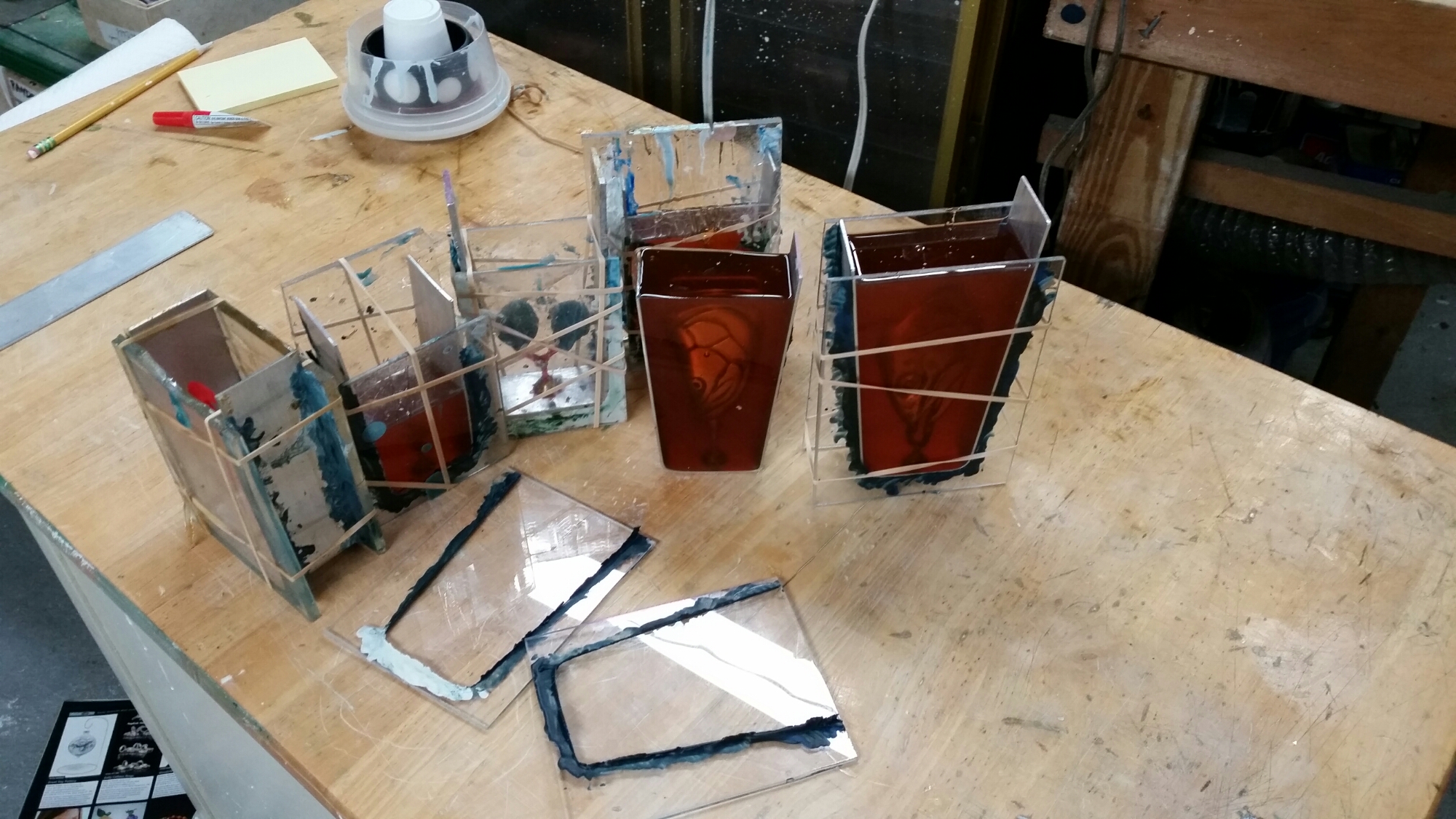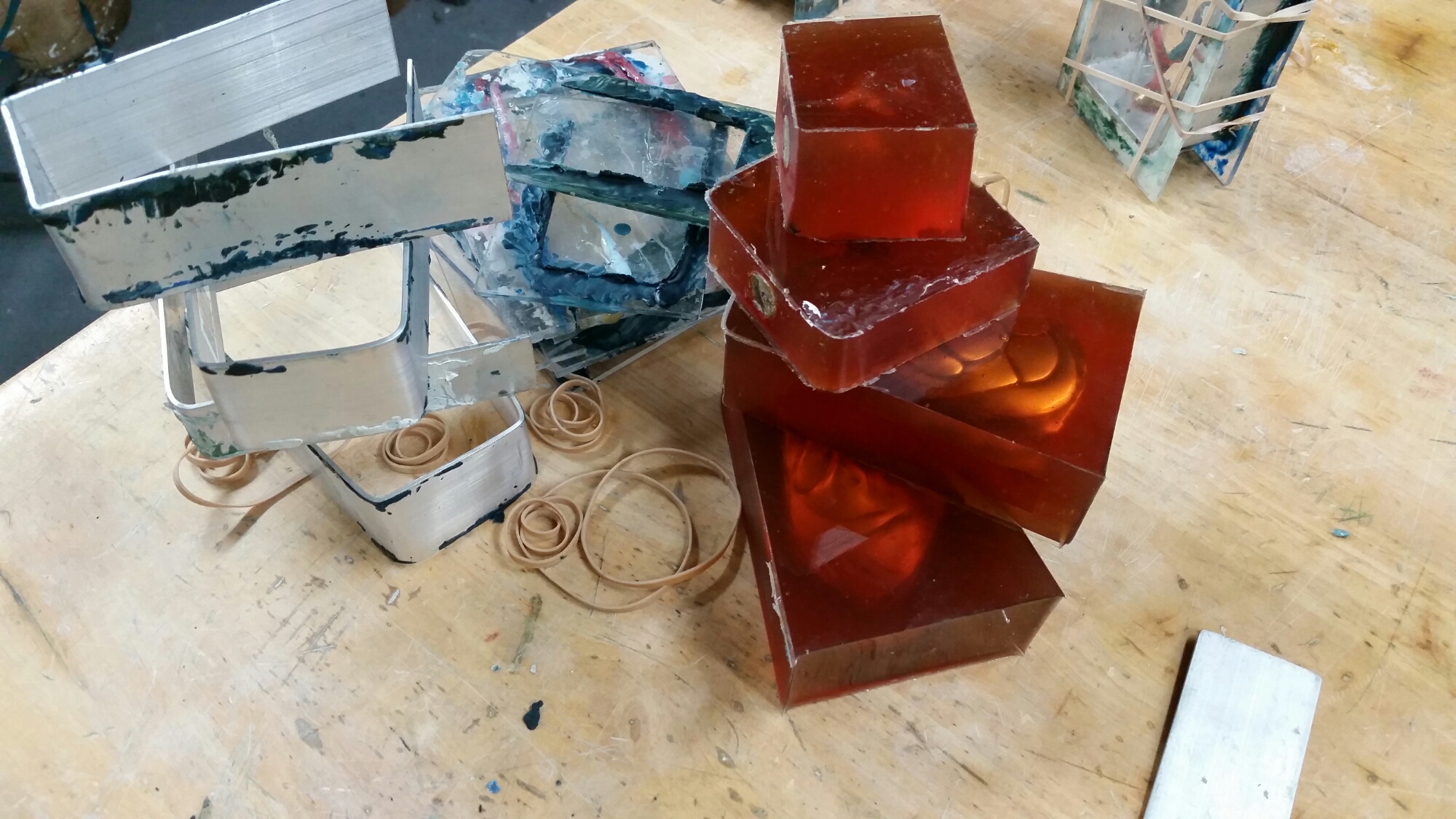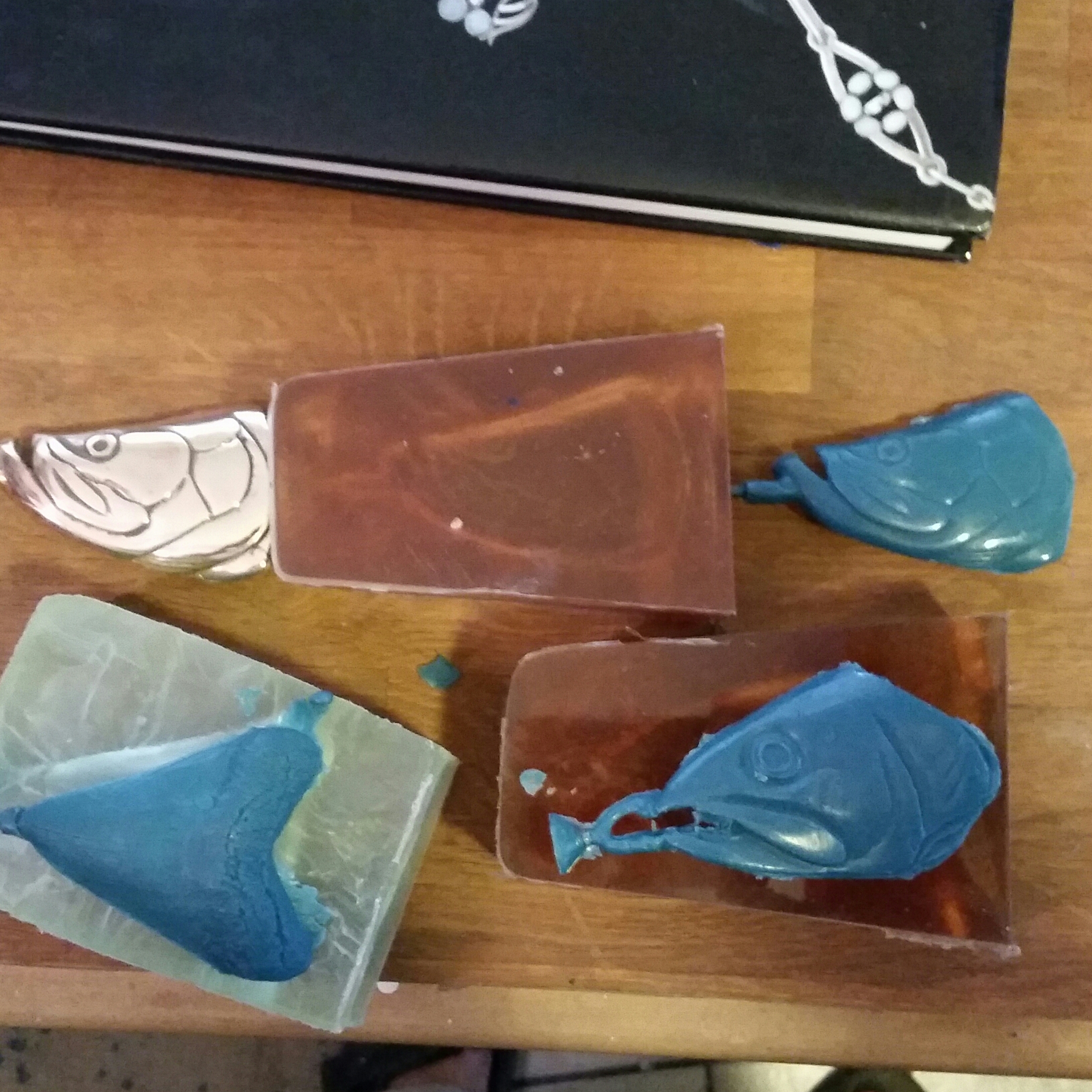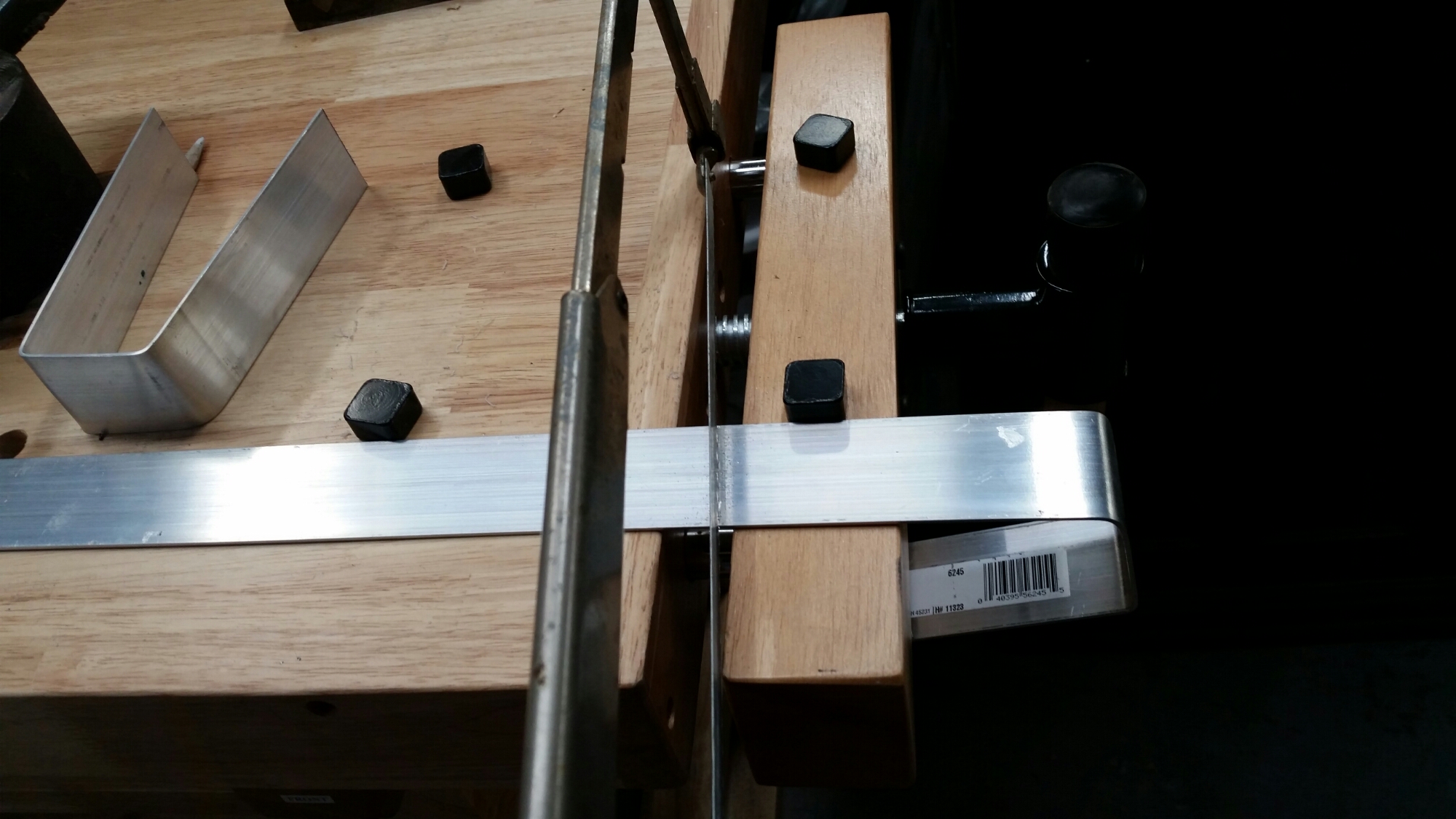This is a journal of studio events, art shows, travels, ideas and works in progress for my jewelry adventures
Thursday, November 3, 2016
One of a kind Cuffs
Crashing Wave Bracelets
I've been working on a collection of crashing wave bracelets.( Instead of a week at the beach ) I'm now doing them in Four or five different weights and price points Each link is individually made. The heavy ones take some serious plyer twisting. I love making these bracelets it's one of my favorite things to make. Interestingly, I know almost everybody who owns one. In fact I have only sold one to a total stranger. You might think I would have made hundreds of these over the years but actually I have only sold about two dozen. Join the exclusive club!
Wednesday, September 28, 2016
Buckle Castings in Precess

I'm running through a series of buckles. You can see the progress from rough castings to ready to patina and the finished buckles ready for this weekend show, my website or my etsy store. This first photo is mostly rough castings with some sanding already started
Here is some of them finished and waxed and ready to go
I took this Blue crab claw buckle to the next level by giving
it Multiple layers of different patinas. Blues, greens, browns and some
black. The final step is wax. The Wax actually saturates the colors and
give it depth.
The blue crab claw buckle before patina started:
I'm tempted to keep this one for myself. But I'll take it to the show this weekend to give other people a chance and put it on the etsy store and website next Monday if it doesn't sell. If you see it and want to claim it before the show on Saturday just contact me and I'll send it to you. It's 95.00
Thursday, May 5, 2016
Making Molds
One of the processes involved with making castings, if you want to
make more than one, is making molds. I use a liquid room temperature
Vulcanizing urethane or silicone. I use a semi clear formula that allows
me to see the part as I cut it out of the mold. Otherwise I'm cutting
blindly into block of rubber.
The first step is making the mold frame here I'm cutting a strip of aluminum and bending it into this U shape. I'll make a box out of this with two pieces of plexiglass, put my wax or metal model inside, fixed to the bottom and then pour the rubber around it.

In the picture above, from left to right, you see the box sealed up and ready to pour next is one that is already been poured, in the middle is another one that is ready to pour, second from the right is a cured mold with the box removed and on the end, on the right, is one that's been poured and ready to de-mold

above is a stack of molds ready to start cutting.

Here the molds have been cut open along the sides of the models to make a 2 part mold. The top of the pictures shows the original bronze casting that I used to make the mold, the mold after cutting with the original removed, and the wax that was shot into the mold to make the reproduction. As you can see from the waxes, there is still a lot of work to be done before the casting process can begin. The next step is to in case these waxes in a cylinder filled with a special high temperature plaster then the plaster is placed in the oven and heated to 1600 Degrees to burn out the wax. Then the molten metal is forced into that cavity by centrifugal force of the casting machine.
The first step is making the mold frame here I'm cutting a strip of aluminum and bending it into this U shape. I'll make a box out of this with two pieces of plexiglass, put my wax or metal model inside, fixed to the bottom and then pour the rubber around it.

In the picture above, from left to right, you see the box sealed up and ready to pour next is one that is already been poured, in the middle is another one that is ready to pour, second from the right is a cured mold with the box removed and on the end, on the right, is one that's been poured and ready to de-mold

above is a stack of molds ready to start cutting.

Here the molds have been cut open along the sides of the models to make a 2 part mold. The top of the pictures shows the original bronze casting that I used to make the mold, the mold after cutting with the original removed, and the wax that was shot into the mold to make the reproduction. As you can see from the waxes, there is still a lot of work to be done before the casting process can begin. The next step is to in case these waxes in a cylinder filled with a special high temperature plaster then the plaster is placed in the oven and heated to 1600 Degrees to burn out the wax. Then the molten metal is forced into that cavity by centrifugal force of the casting machine.
Friday, March 25, 2016
Building a setting
This project started out with a customer bringing me a Marquise shaped
Stone. and a sketch.The stone was a shape and size then I couldn't buy a
setting for so I decided to make one
I
used a soft fire brick as my soldering pad and this allowed me to push
the wire prongs into the pad and hold them in place in little notches I
filed to hold them
After those were soldered I pulled it out of the brick and soldered on the bottom frame. Unfortunately I don't have a picture of that, but you can see it in the next picture sitting on the solder pad. At this point I still have the prongs sticking down so I pressed them back into the fire brick to allighn it for the next solder joint.
I forged out the wings and added them to the setting.
At this point I pre finished the entire piece before setting the stone so I could get to the hard to reach places and not worry about the stone.
The finished piece. This was a custom made piece so it's not available for purchase.
Subscribe to:
Comments (Atom)














